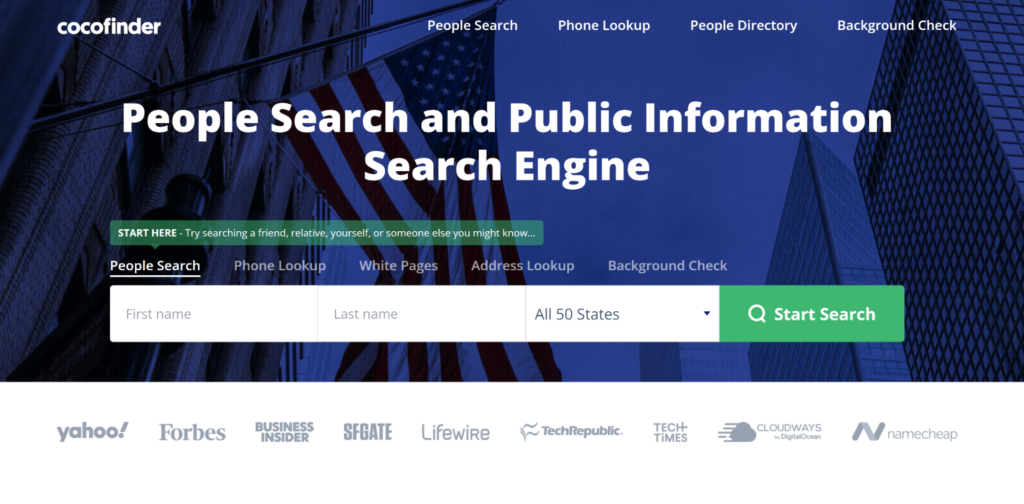
In an increasingly interconnected world, the ability to locate someone can be both a necessity and a convenience. Whether for reconnecting with a long-lost friend, verifying an acquaintance’s background, or gathering information for personal reasons, people searches have become commonplace. Utilizing tools like CocoFinder can streamline the search process, making it easier to find the information needed. This guide will provide step-by-step instructions on how to effectively conduct a people search while ensuring ethical considerations are met.
What is a People Search?
A people search involves finding details about an individual based on various identifiers such as their name, phone number, or address. The information retrieved can range from contact details to background history, making it a valuable resource for various purposes.

Reasons for Conducting a People Search
There are several common reasons why individuals might perform a people search:
- Reconnecting with Friends or Family: People often wish to find relatives or friends they have lost touch with over the years.
- Background Checks: This is crucial in situations like hiring for jobs, renting apartments, or verifying new acquaintances.
- Locating Old Associates: Many seek to reconnect with former classmates or colleagues for networking purposes.
- Address Verification: Confirming where someone lives or has lived can be important for a variety of personal reasons.
The Role of Online Tools in People Searches
How Technology Has Transformed People Searches
The advent of the internet has significantly simplified the process of finding individuals. Numerous online platforms provide extensive databases that aggregate public records, social media data, and more. One notable tool is CocoFinder, which offers a user-friendly people directory to help locate people effectively.
Features of CocoFinder
CocoFinder boasts several features that enhance its usability:
- Comprehensive Database: Users have access to a vast collection of public records, increasing the likelihood of retrieving accurate information.
- User-Friendly Design: The platform’s intuitive layout makes it accessible for individuals with varying levels of technical expertise.
- Data Privacy Assurance: Users can conduct searches while maintaining their privacy, as CocoFinder does not disclose search activities.
Step-by-Step Guide to Conducting a People Search
Step 1: Define Your Objectives
Before initiating a search, it’s essential to clarify what you hope to achieve. Having clear objectives will streamline the process and help in selecting the right tools. Consider the following questions:
- Are you looking for contact information or simply trying to verify someone’s identity?
- What specific details do you already have about the individual, such as their full name or last known location?
Step 2: Gather Relevant Information
The more information you have about the person you’re searching for, the more effective your search will be. Collect the following details if possible:
- Full name (first and last)
- Any known aliases
- Last known address
- Phone numbers
- Email addresses
- Date of birth (if available)
This foundational information will significantly enhance your search results.
Step 3: Select the Right Tool
Choosing the right tool is critical for a successful people search. While various platforms are available, tools like CocoFinder can be particularly beneficial due to their comprehensive data and user-friendly features.
Step 4: Conduct the Search
After gathering the necessary information and selecting a tool, proceed with the search. Here’s how to conduct a search using CocoFinder:
- Visit the CocoFinder website.
- Enter the individual’s first and last name into the search bar.
- Select the relevant state, if applicable.
- Click the search button to retrieve results.
Step 5: Analyze the Search Results
Once the results are generated, it’s important to take the time to analyze them carefully. Pay attention to:
- Consistency: Look for consistent information across different entries.
- Relevant Background Information: Ensure the details align with your search objectives.
- Additional Insights: Take note of age, location history, and potential relatives that may provide further leads.
Step 6: Verify the Information
While tools like CocoFinder provide valuable insights, verifying the information independently is crucial. Cross-reference the details with other public records or social media profiles to enhance accuracy.
Step 7: Use the Information Responsibly
The data obtained through a people search can be sensitive, and it’s essential to use it responsibly. Here are some guidelines:
- Respect Privacy: If you choose to contact someone based on your findings, approach them with care and respect for their privacy.
- Ethical Considerations: Use the information only for legitimate purposes, and avoid any actions that may invade someone’s privacy.
Frequently Asked Questions

Is People Search Legal?
Yes, conducting a people search is generally legal, as long as it adheres to local laws and regulations. Tools like CocoFinder comply with the Fair Credit Reporting Act, ensuring responsible access to information.
Is People Search Safe?
Concerns about safety while using online search platforms are common. CocoFinder is designed with user security in mind, incorporating features to protect against viruses and phishing attempts.
What Can I Do with the Information?
The information obtained from a people search can serve various purposes, such as reconnecting with old friends, verifying identities, or conducting professional background checks.
Will They Know I Did a Background Search on Them?
CocoFinder maintains user confidentiality, ensuring that searches conducted on its platform are not disclosed to the individuals being searched. Users can perform inquiries without concern for privacy violations.
Additional Considerations
The Importance of Ethical Conduct
When conducting a people search, it’s vital to consider the ethical implications of your actions. Respecting individuals’ privacy and using the information responsibly is crucial for maintaining trust.
Staying Informed About Legal Regulations
Laws regarding privacy and data usage can evolve. Users should remain informed about current regulations related to people searches and data privacy to ensure compliance.
Exploring Alternative Methods
While online tools like CocoFinder offer robust options, other methods can also be effective:
- Social Media: Platforms like Facebook, LinkedIn, and Instagram can be invaluable for finding individuals, especially younger generations.
- Public Records: Government databases can provide additional avenues for obtaining public records.
- Networking: Reaching out to mutual acquaintances can sometimes yield valuable insights.
Conclusion
Conducting a people search has become a commonplace practice in today’s digital landscape. By following the outlined steps and utilizing tools like CocoFinder, individuals can effectively find the information they need while ensuring ethical considerations are met. Understanding the intricacies of people searches and utilizing the right resources will ultimately lead to more successful outcomes, whether reconnecting with loved ones or verifying the credibility of new acquaintances. By approaching people searches with care and responsibility, individuals can harness the power of technology while respecting the privacy of others.





